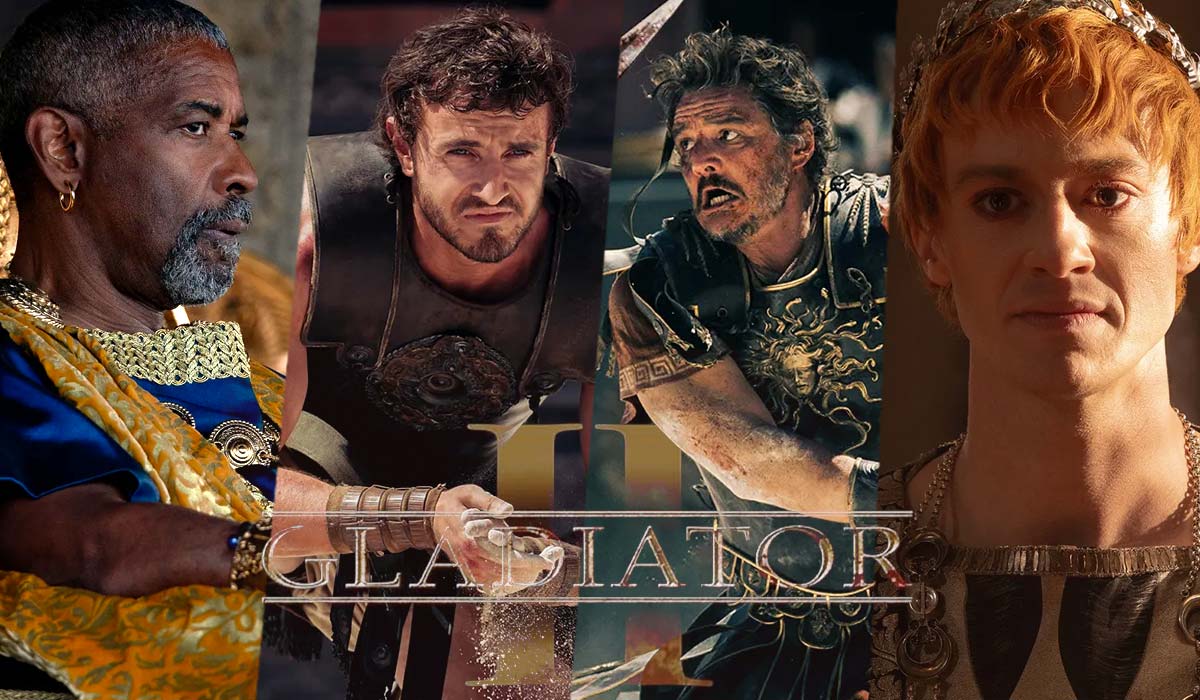
Paul Mescal Gives A Mostly Worthy Fight In Sequel That’s Timelier Than It Seems
Nov 11, 2024
Not long ago, scores of women on social media discovered that, apparently, a large swath of heterosexual men recurrently think about the Roman Empire. An endless source of shared fascination. For many of those adult men such interest probably emerged from watching Ridley Scott’s original “Gladiator” more than two decades ago and not from textbooks. The honor-driven, kindness-laced heroism of Russell Crow’s Maximus represented an admirable brand of manhood to aspire to, that of a grieving, unwavering individual fighting for a just cause.
All these years later, as the sequel, now starring Paul Mescal, gears up to hit theaters, the state of modern manliness in the West seems bleak. The poisonous “alpha male” ideologies that plague the internet have often co-opted the imagery of ancient civilizations.
READ MORE: Ridley Scott Is Already Writing ‘Gladiator 3’: “I’ve Got The Beginning Of A Very Good Footprint”
They use them as banners of the hegemonic masculinity they aim to represent through a dangerously distorted lens. In this country, these types might watch “Gladiator II” seeking validation for their so-called traditional worldviews, yet their cognitive dissonance will prevent them from grasping that their beliefs and actions align closer with the vain, blood-thirsty, buffoon-like emperors (they voted for one) than with the virtuous paladins.
David Scarpa’s screenplay sets the follow-up in 200 AD. Numidia, an African territory where runaway Lucius (Mescal) resides with his wife, is under the siege. The Romans, led by Marcus Acacius (Pedro Pascal), have arrived to conquer. Lucius will come out alive but enslaved, while his wife perishes in battle.
Carrying darkness under his eyes, Mescal convincingly invokes the tragic ferociousness that propels the character. The role, however, feels somewhat one-noted for an actor who’s earned his stripes playing intriguing young guys often grappling with their mental health—sometimes openly as in “Normal People” and others under wraps: “Aftersun.” But even if not exploited for all its nuance, Mescal’s affinity for conveying tumultuous emotions, plus his chiseled physique here, serves Scott’s tale well, and successfully introduces the Irish actor into the realm of major Hollywood productions.
READ MORE: Ridley Scott Says ‘Gladiator II’ Is The “Best Film I’ve Ever Made”
Bought from his captors by Macrinus (Denzel Washington), a sleazy politician pulling the strings of Rome to precipitate its downfall, Lucius becomes a gladiator for the entertainment of twin emperors Geta (Joseph Quinn) and Caracalla (Fred Hechinger). His goal, at first, is to claim Acacius’ head. But as the intricacies of his past come to light through a tenderly resolute Lucilla (Connie Nielsen, reprising her regal role), what’s at stake reveals itself to be larger than one man’s revenge. Washington is acting here in a different, more interesting tonal register than the rest of the cast. While everyone else gives into the seriousness of the period drama, his Macrinus appears devilishly nonchalant, as if nothing can faze him. The performance could be described as anachronistic, almost as if Macrinus had landed there from the future.
Late in the epic picture, Washington’s part functions as a not-so-veiled parable for the empty promise of the American Dream, especially the questionable notion that anyone can climb their way from the lowest level in the social strata into a position of power. There’s a fury behind Macrinus’ plans that those around him can’t understand because they have experienced the Roman Empire from his vantage point (a slave who bought his way to freedom and, in turn, became a slave owner). Destruction means victory to him.
Outside of it’s A-list human capital, “Gladiator II” suffers from a jarring visual disconnect between the excessively pristine computer-generated animals and backgrounds and the tangible production design elements. Early on, a sequence where Lucius fends off a rabid monkey exhibits these baffling discrepancies. While Mescal’s rugged appearance and weather attire read believable, his ape enemy looks cartoonish.
Larger set pieces involving imposing vessels, as well wide shots of the Coliseum or other enormous structures make one long for the era of physical models where more widely employed. It’s during the one-on-one combat scenes that Scott’s direction feels most alive, as the physical prowess of each combatant bursts with animalistic vigor. There, body against body, blade against skin, one man’s will against another’s in front of thousands of spectators, that brutality gives way to glory. And Scott is no stranger to cinematically communicating such grand sense of honor drenched in blood.
There’s no lack of philosophical proclamations via dialogue, but the most powerful of them have no words: Mescal’s Lucious holding tightly to a fistful of dirt and rocks in the Coliseum, just like Maximus did. That insistence in creating parallels between the two “Gladiator” films—and between Lucius and Maximus—occasionally yields poetic results, though in general the outcome is contrived. More effective at lyrical expressiveness are vignettes that unfold in a monochromatic afterlife (a standout among cinematographer John Mathieson’s contributions to the film) where Lucius sees his loved ones.
Whether intentionally or not, Scott’s latest taps into the zeitgeist at a moment when young men have fallen prey to perverse idols peddling callousness and bigotry as marks of strength. Lucius stands as a leader with a moral compass, who strives for gentleness amid the rage that courses through his veins. “They believe in power,” says Macrinus of the Romans. A true statement that highlights everything Lucius raises his sword against.
That line could just as easily apply to those who think themselves the “good guys” while enshrining an irredeemable criminal who personifies a cult of hatred. Plenty of men in this country who “believe in power” need reminding that “what we do in life echoes in eternity.” [B-]
“Gladiator II” arrives in theaters on November 22.
Publisher: Source link
"We Despised Each Other So Much That It Read As Love": 13 Costar Duos Who Did NOT Get Along
Diane Kruger said, "It kind of sucked. He's dead, so I can say that. But he wasn't the most pleasant person."View Entire Post › Disclaimer: This story is auto-aggregated by a computer program and has not been created or edited…
Dec 25, 2024
19 Best Experience Gifts for Everyone on Your List
Our writers and editors independently determine what we cover and recommend. When you buy through our links, E! may earn a commission. Learn more. As the holidays approach, the last loved one on your list is usually the hardest person to…
Dec 25, 2024
Celebs With Embarrassing Tattoo Mistakes Revealed
If read vertically from top to bottom and horizontally from right to left, which is how Japanese is read, the tattoo translates roughly to say "ring seven fingers." However, if the tattoo is read horizontally from left to right and then…
Dec 24, 2024
Bruce Willis’ Wife Emma Shares Family Photos Amid His Health Battle
Bruce Willis’ wife Emma Heming Willis is cherishing the good times. Almost two years after the Die Hard actor’s wife, his ex-wife Demi Moore, and his kids Rumer Willis, 36, Scout Willis, 33, Tallulah Willis, 30, Mabel Willis, 12, and Evelyn Willis, 10, announced that…
Dec 24, 2024











